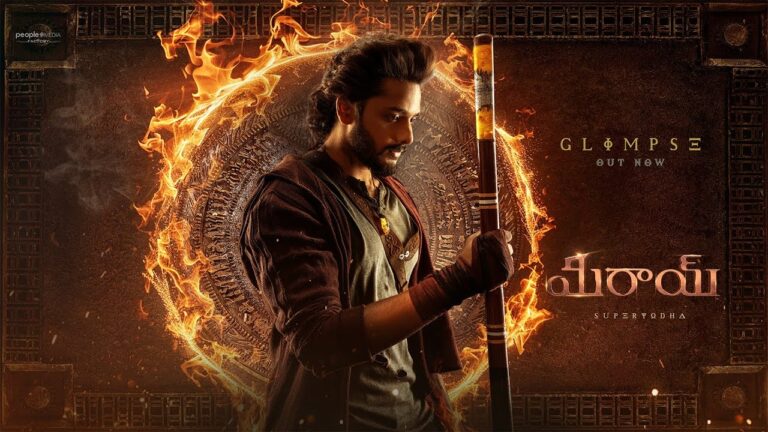Over the last few years, Indian cinema has leaned on its mythological history to tell stories on a massive scale. Movies like Kalki 2898 AD, Bramhastra: Part One, Hanu-man, and Karthikeya 2 are recent examples of pan-Indian titles that use ancient texts to fuel their globe-trotting adventures. Which is fair. If the MCU was able to get kick-started from less than a century of comic history, Indian cinema can go much further back to stir something more epic. However, at times, the religious connotations can obscure further criticism. So, let’s dig a bit deeper into Mirai to find out why it’s disappointing despite its promising ideas.
Mirai, from director Karthik Gattamneni, tells the story of a kid who is unknowingly tasked to guard nine ancient scriptures from an evil man hell-bent on becoming a God. With a runtime of nearly three hours, there’s a lot packed into the movie. To the movie’s credit, some of that is entertaining. There’s a fun setup that sort of feels like SS Rajamouli’s Yamadonga, as a reluctant hero is fighting with his own destiny. Cool action sequences do well to highlight the stakes, and there’s some comedy thrown in as well. Also, it’s nice that they have a young actor at the helm instead of a 50-year-old man made to look spry and youthful.
The problem is that Mirai is like a meal with most of the right ingredients and a few really bad ones that ruin the appetite. Some of this is the meme humor that constantly undercuts the dramatic moments. This is a criticism that has been levelled against the MCU films for years now, and it’s not a part of the formula that needed to be copied. An adventure movie can, of course, have jokes, and there were a few times where I laughed, but having characters constantly quote memes or do voices for the sake of fun when the stakes are so high dampens their impact.
The worst aspect of this dish, however, is the unnecessary use of AI visuals. There are two main issues with this. The first is that the AI sequences rarely add anything of value to the experience. For example, there is one scene where one character sends off a pigeon with a message, and AI shots are added to show the pigeon travelling before reaching the second character. What’s the point of seeing the pigeon? It adds nothing significant, and the AI visuals are so different from the real shots that it’s just jarring to watch.
As for the second point, Mirai is a movie about divine creation and destiny. Seeing the AI slop thrown into the edit really removes the human creative intent behind the story. The movie tackles subjects of mythological proportions from a human standpoint and then pollutes that idea with artificial intelligence. I know making a movie of this scale isn’t easy, and they seemed to have travelled a lot to get certain visuals on location. I just wish they didn’t undercut that effort with AI-generated imagery. I would rather see a movie built in reality that’s defined by its limitations than a fantastical one with AI visuals and no impact.
My last point about Mirai is the ending. After 3 hours of build-up, the movie ends with little to no resolution. In a matter of 5 minutes, the hero goes from losing to winning, and the credits roll. Characters don’t get a proper send-off, and no loose threads are tied off. At my theater, as the movie ended, the family in the row in front of me started to get up, and the kid asked if there was a post-credit scene. The dad stood up and said, “No, only that MCU crap has that kind of junk.” Almost immediately, the voice-over began for a Mirai sequel tease that may or may not actually happen because that’s just part of the “pan-Indian” formula now.
+ GOOD +
- Interesting setup
- Cool action sequences
- Funny in parts
– BAD –
- Poor pacing
- Overuse of memes and comedy
- Unnecessary AI visuals
- Unsatisfying conclusion
- Another sequel tease
